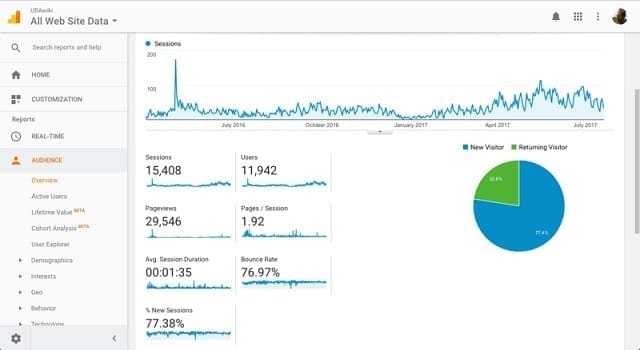Why Your Website Needs Accelerated Mobile Pages (AMP) in 2019

Responsive website design is essential to remain visible online with AMP being the future for SEO and user performance.
If you haven’t heard of AMP or Accelerated Mobile Pages and already taken advantage of the benefits they can bring to your business’s online presence, then you seriously need to bring yourself (and your website) up to speed.
This powerful optimisation tool can help improve your visibility in search engines and boost your SEO plus increase the time people spend on your website when they do find you.
So, let’s take a look at the crucial reasons why your website needs Accelerated Mobile Pages in the year ahead.
What are Accelerated Mobile Pages?
Also known as HTML-Lite, Accelerated Mobile Pages (or, AMP) is a tool developed by Google (in association with Twitter) and is designed to produce super-fast page loading speeds for mobile.
It was created to compete with other similar projects like Facebook’s Instant Articles and focuses on delivering heavily cached, responsive and streamlined online content.
Accelerated Mobile Pages are open source and are easily integrated into the design of your website without the need for expensive overhauls.
Why are Accelerated Mobile Pages Important for Web Design and SEO?
When Google announced that it would be increasing the importance of mobile-friendly websites in SERPs, the world sat up and took notice.
The news meant that to rank well, websites had to be optimised for faster loading times on mobile devices.
Page loading speeds have always been an essential part of website design and research from Kissmetrics shows that 40% of people abandon a website if it takes longer than 3 seconds to load.
Traditional HTML just isn’t designed for speed which is why Accelerated Mobile Pages are so important.
Critically, mobile-first indexing (Google’s commitment to crawl mobile versions of a site before the desktop version) means that speeding up the performance of your website specifically for mobile devices is key.

The evolution of mobile devices has meant that they have become far more important in SERPs.
The Importance of Speed on SEO
Page speed and load times is a critical element of how well your website ranks in search engine results; Fact.
The time it takes to load a page is seen by Google as a measure of how user-friendly it is and that is a major factor in the way it ranks a site and how visible it will be in their results.
The truth is that, if two sites rank equally in terms of all other SEO criteria then, it is page speed that will separate how they are prioritised.
Google has even set some Best Performance indices about how its algorithms monitor and rank this factor. According to the search engine giants, the average time to first byte should be 1.3 seconds or under.
With targets like these, it is critical to ensure that your website is optimised for the fastest possible performance and that’s where AMP comes in.
The Importance of Speed on User Experience
And it’s not just how search engines rank your page that make PageSpeed critical, it’s your users too.
Research from ThinkGoogle suggests that page load times of 1-3 seconds increase the likelihood of a bounce rate (where a site is abandoned) by 32%. This increases to:
- 90% for page load times of up to 5 seconds
- 106% for page load times of up to 6 seconds
- 123% for page load times of up to 10 seconds
Still not convinced?
How about the studies undertaken by DoubleClick on the ‘Need for Mobile Speed’ which suggest that sites with page load speeds of under five seconds (compared to those measured at 19 seconds) saw
- 60% greater page views per visit.
- 35% lower bounce rates.
- 25% higher viewability.
- 70% longer sessions.

AMP can positively affect your performance metrics including lower bounce rates.
The Take Home on AMP
It’s simple; the speed of a website is an essential factor in both how well it performs in SERP and with its users.
This has become far more important with mobile-first indexing and AMP offers a quick, easy and flexible way to do this.
If you haven’t optimised your website for mobile performance with AMP then you are effectively handing your competitors your customer contact book.
Opace and Mobile Responsive Website Design
Opace is a digital agency based in Birmingham offering a range of services to help clients take advantage of responsive website design. We would love to talk to you about how we can future-proof your website, improve performance and maximise SEO. Contact one of our team today to discuss your needs and find out what makes our clients happy to recommend us.
Image Credits: pxhere, Wikimedia and Wikimedia.
« Back to Glossary Index




